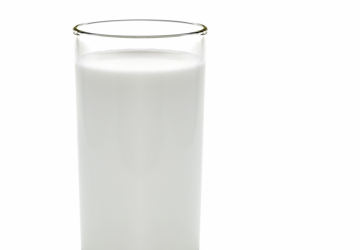 Look out, children of Fargo, North Dakota: Your town is the latest to fall victim to the food police. In true Soup Nazi fashion, one house will tell kids “No candy for you” and give them “You’re fat” letters instead. USA Today reports:
Look out, children of Fargo, North Dakota: Your town is the latest to fall victim to the food police. In true Soup Nazi fashion, one house will tell kids “No candy for you” and give them “You’re fat” letters instead. USA Today reports:
The letter states: “You child is, in my opinion, moderately obese and should not be consuming sugar and treats to the extent of some children this Halloween season.” It continues: “My hope is that you will step up as a parent and ration candy this Halloween and not allow your child to continue these unhealthy eating habits.”
It’s hokum like this that our Senior Research Analyst is fighting in today’s Birmingham News. Activists pushing the notion that certain foods are “bad” — whether it’s because they’re supposedly “addictive” based on extraordinarily weak evidence, because they aren’t organic, or because they may employ biotechnology in production — are spinning scary stories to drive their agendas.
The addiction notion recently re-ignited thanks to a study that claimed Oreo cookies were somehow as addictive as cocaine. But this study isn’t credible, as we explain:
An un-reviewed, unpublished study conducted in part by undergraduates at Connecticut College claimed that the treats were so addictive that eating the cookie lit up the rat’s brain the same as cocaine or morphine. In reality, the study actually only proved that rats running mazes preferred cookies to rice cakes — when it comes to these overhyped studies the devil really is in the details.
And foods produced with biotechnology, currently under attack from activists like the junk-science promoting Environmental Working Group (“Worrying” might be a better fit) in Washington State, aren’t harmful at all. Our Senior Research Analyst notes:
In truth, these ingredients are about as frightening as a baby panda. Americans have been eating biotech foods since the 1990s with no ill effects. Reputable scientists like the American Medical Association confirm that biotechnology is at least as safe as other crop-breeding methods and hold that there is quite literally no scientific reason to require a special label on these foods or to avoid them.
Whether it’s lone parents waging a single-house war on pleasure, undergraduate “social justice” students employing junk science to attack American culinary icons, or professional activists serving the $30 billion organic food industry, there’s an all-out offensive against Halloween treats. But people can fall back on sound science to inform sound policy, as long as they remember to do so.




